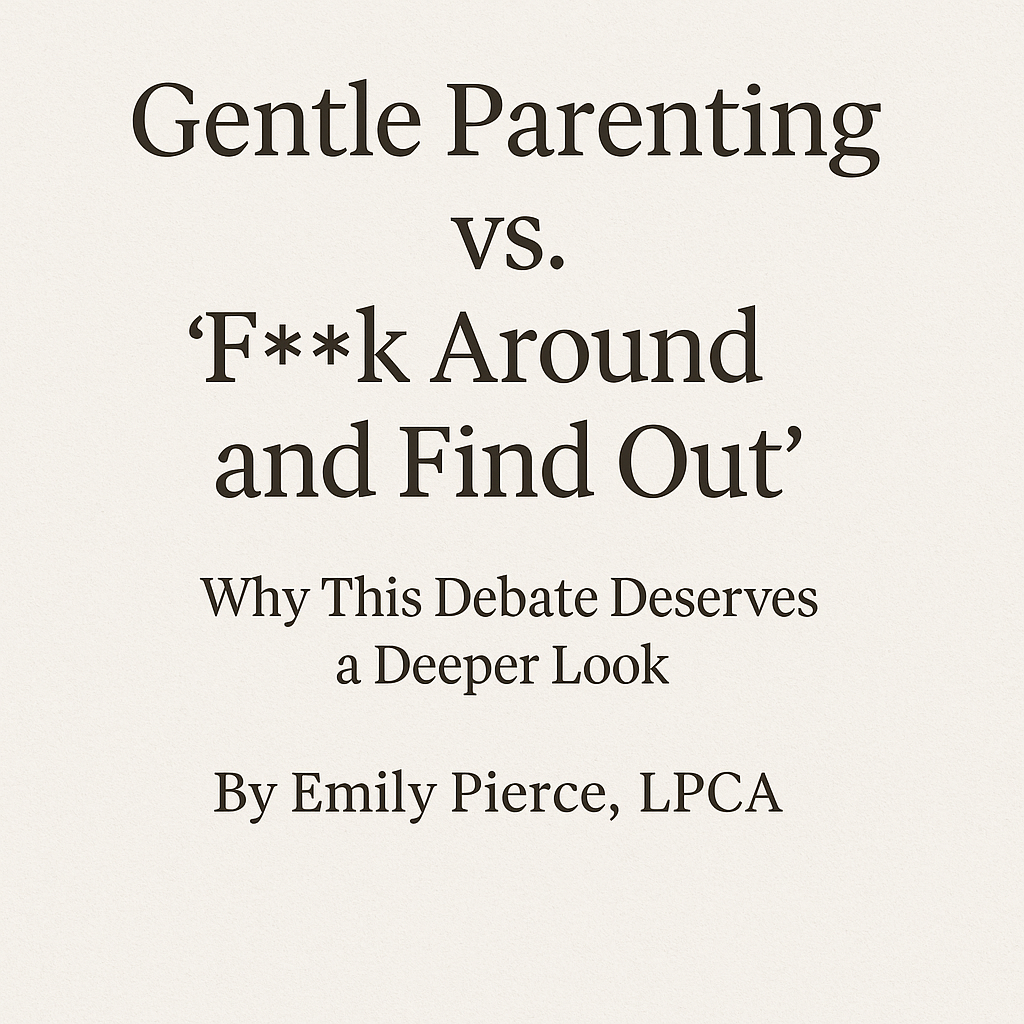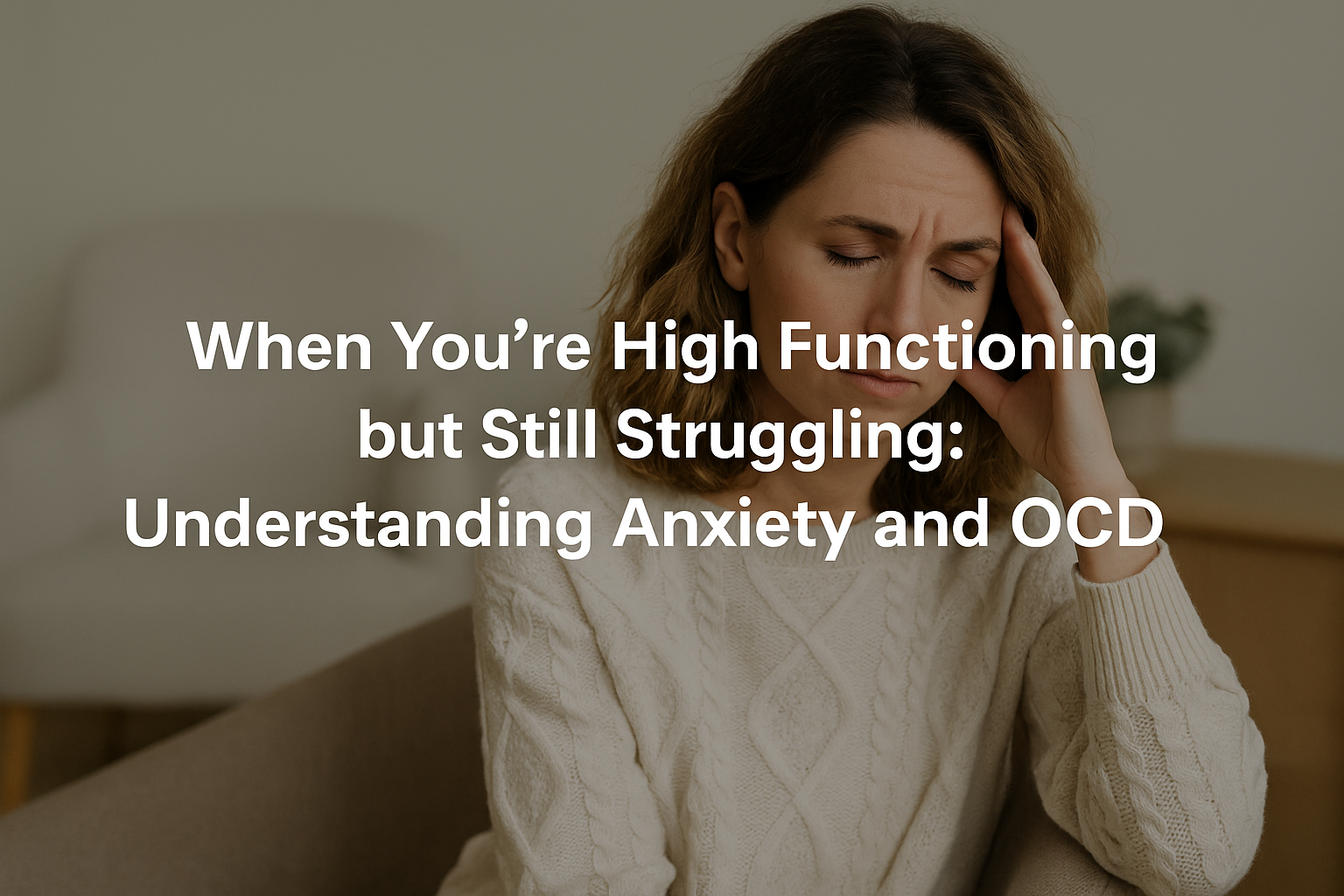Gentle Parenting vs. “F**k Around and Find Out”

Why This Debate Deserves a Deeper Look
By Emily Pierce, LPCA
Licensed Professional Counselor Associate and Mom
Lately, I’ve been seeing a lot of content floating around the internet comparing “Gentle Parenting” to what some folks (half-jokingly) call the “F**k Around and Find Out” style of parenting. At first glance, it might seem like these two approaches are worlds apart—but before we pick a side, let’s take a collective step back.
Let’s Start Here: Parenting Doesn’t Come With a Manual
Most of us are figuring this out in real-time. We’re parenting based on how we were parented. Maybe we’re repeating patterns. Maybe we’re trying to do the complete opposite. But either way, we only know what we know.
I say this not just as an LPCA who works with kids and families—but also as the parent of a wild, wonderful, boundary-testing three-year-old. And I’ll be honest: even with my training, there are moments when I feel totally unprepared.
That’s why these online parenting debates are more than just content—they’re cultural reflections of how we’re all trying to make sense of something deeply personal and incredibly hard.
Why I Lean Into Gentle Parenting ( which is not really gentle at all)
Let me be clear: gentle parenting is not permissive parenting. It’s not “let them run wild.” It’s also not parenting without discipline. It’s parenting with
connection, curiosity, and boundaries—the kind of parenting I wish more of us had growing up.
One of my biggest influences is Dr. Becky Kennedy, founder of Good Inside. Her work changed the way I think about discipline, repair, and emotional safety.
Some of my favorite takeaways from her work:
- Behavior is communication. A tantrum isn’t rebellion—it’s a cry for help.
- Connection before correction. Kids listen better when they feel seen and safe.
- Repair is powerful. We don’t need to get it perfect—we need to be willing to go back and make it right.
But What About Consequences?
The “F**k Around and Find Out” crowd isn’t wrong to want firm boundaries. In fact, kids need clear expectations and consistent follow-through. But here’s the thing: when consequences are delivered with fear or shame, they often shut down the very skills we want our kids to build—like empathy, problem-solving, and emotional regulation.
We can absolutely hold our kids accountable and stay emotionally connected. That’s not weakness—it’s
wise, relational leadership.
Real Talk: It’s Hard to Parent Differently Than You Were Raised
When I work with parents as an LPCA, I often hear things like:
“I don’t want to yell, but that’s how my parents got me to listen.”
“I feel like I’m failing when I try to be gentle.”
“I’m so triggered when my child talks back—I just snap.”
And I get it. We’re not just parenting our kids—we’re re-parenting ourselves. We’re trying to show up differently with tools we were never given. That takes courage, patience, and a lot of grace.
The Middle Ground: Respectful, Resilient Parenting
Parenting isn’t binary. It’s not soft or strict. It’s not all feelings or all rules. Most of us live somewhere in the messy, beautiful middle. We yell, we apologize, we grow.
You’re allowed to:
- Need space and boundaries
- Feel frustrated and overwhelmed
- Change how you parent at any time
The goal isn’t perfection. It’s presence.
Final Thoughts
Before we turn parenting into a battleground of labels and hot takes, let’s remember what this is really about: raising whole, resilient humans—while becoming more whole and resilient ourselves.
So whether you're team “gentle,” team “consequences,” or team “making it up as I go,” you are not alone. Keep showing up. Keep reflecting. Keep doing the hard, heart-filled work of parenting.
You’re doing better than you think.


